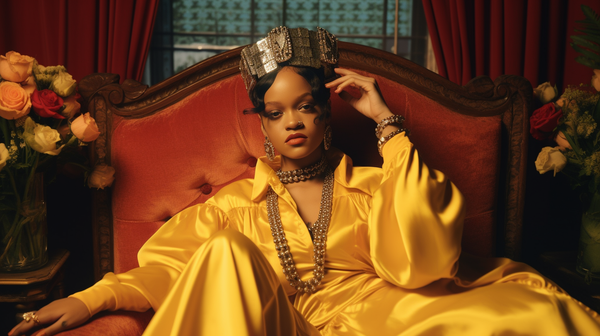The Unfair Critique of a New Mom's Body
Rihanna's experience at the lavish pre-wedding party of Anant Ambani and Radhika Merchant isn't just a story of celebrity gossip; it's a reflection of the societal microscope under which new moms are scrutinized. Here was Rihanna, globally celebrated for her talent and strength, yet reduced to mere physical judgments just a few months after welcoming her second child. The comments she faced — suggestions that she looked still pregnant or should resort to cosmetic surgery to "fix" her body — are indicative of a broader cultural problem. It's a stark reminder of the unrealistic, and frankly, unfair expectations placed on women to immediately rebound to their pre-pregnancy figures, ignoring the reality of childbirth and the time it takes for a body to heal and adjust.
Voices of Reason Amidst the Noise
In the midst of criticism, a chorus of support emerged, shining a light on the growing movement towards body positivity and acceptance. Comments advocating for the normalization of postpartum bodies and calling for education on women's health post-childbirth were a heartening counter to the negativity. These voices of reason aren't just defending Rihanna; they're fighting for every mother who's felt judged or inadequate due to her post-baby body. They remind us that the conversation needs to change from critique to support, from unrealistic expectations to a celebration of the incredible process of bringing a new life into the world. It's about understanding and empathy, recognizing the strength of mothers, and the natural changes that come with childbirth.
The Bigger Picture: Societal Expectations
Rihanna's situation brings into focus the societal pressures that extend far beyond the rich and famous. It's a societal echo that resonates with many mothers worldwide, who feel the weight of expectation to "snap back" to their pre-baby bodies. This pressure isn't just about physical appearance; it's tied to deeper issues of identity, self-worth, and acceptance in the postpartum period. The narrative that glorifies rapid physical recovery post-birth overshadows the real stories of motherhood — the challenges, the triumphs, and the undeniable beauty of this transformative journey. We need to shift our collective gaze from superficial ideals to the profound, empowering aspects of motherhood, celebrating resilience, health, and wellbeing over appearance.
Redefining Snapback
"Snapback" should not be a term that evokes stress or pressure for new moms. Instead, let's redefine it to symbolize a return to strength, to feeling comfortable and confident in one's postpartum body, whatever that looks like. It's about snapping back to a state of self-love, embracing the changes, and recognizing the incredible feat your body has accomplished. This redefined snapback isn't a physical state; it's a mindset, an acceptance of your new self, and a celebration of the journey. It's about moving forward, not backward, and finding joy and confidence in who you've become — a powerful, life-giving, resilient mother.
A Collective Call to Action
As we wrap up our chat, let's remember that the conversation sparked by Rihanna's postpartum body scrutiny is more than just celebrity news — it's a rallying cry for change. It's a call to action for all of us to support, uplift, and celebrate mothers in all their forms. By standing together, we can challenge outdated norms and create a culture that recognizes the true value and beauty of motherhood. Let's continue to advocate for a world that respects and admires the journey of motherhood, one where every mom feels seen, valued, and celebrated for her strength and her story.



